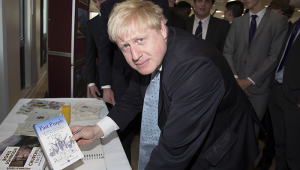Schools closed, patients confined, face masks dished out, antivirals prescribed and the chief medical officer on primetime television.
My daughter wakes up convinced that she has swine flu as it spreads to north London. Do I attribute this to hypochondria, the success of public health messages, or a cool-headed assessment of the risks?
Whichever it is, this outbreak makes it abundantly clear that Mexico is but a stone’s throw from our shores. It is a timely reminder that an increasingly globalised and urbanised world is more susceptible to the rapid spread of infectious disease than ever before.
People movement on an unprecedented scale meant, for instance, that the 2003 outbreak of Sars spread to four continents in 24 hours. The illicit trade in animals and animal-related products has been linked to the spread of bird flu. Illegal drug networks operating from Mexico into the US might likewise hamper efforts to contain or control the current H1N1 contagion.
Concerted government action in recent years means the UK is now better prepared than it has ever been for an influenza pandemic. British public services — especially the emergency services and the NHS — have been preparing for a pandemic for some time, so sophisticated contingency plans are in place, regularly exercised and refined.
However, at the international and local levels, more work needs to be done. In 2007, the Institute for Public Policy Research set up a commission on national security in the twenty-first century. Far from being concerned only with military hardware and strategy, it recognised pandemics as a serious threat to human security everywhere, including the UK.
Multilateral international arrangements are necessary to predict, prevent, detect and respond to outbreaks of disease. We need an international panel of scientific experts, equivalent to the International Panel on Climate Change, to review and publicise developments in the biological sciences that might have implications for security and public health.
We could use our own bilateral aid programmes to upgrade developing countries’ capacities in the field of disease surveillance and response. And we should promote the idea of a global compact for infectious diseases to create a network of research centres, improved data and knowledge-sharing and a major expansion in the production of important drugs and vaccines.
In a world where so many diseases cross the species barrier, we should have an international event-reporting system for animal diseases equivalent to that set up in relation to human health in 2005. The global is now the local, and the best way to protect UK citizens is to boost activity on this front around the world.
At local level, we need to do more to help communities respond to threats and hazards, such as disease. The government’s swine flu leaflet makes a welcome suggestion to set up a network of ‘flu friends’ to pick up medicine, food and other supplies, so that you don’t have to leave home if you are ill.
Initiatives in other fields, such as the Keswick Flood Action Group and the Radio Amateurs’ Emergency Network, offer models for broader adoption.
We could seek to train a new cadre of community volunteers to combat disasters that require resilience. Local authorities also need to consult on and publish their emergency plans more widely.
It is reasonable for the public to expect government to have well-rehearsed plans for emergencies, but government cannot do it all. Individuals, families and communities, in their village, neighbourhood or estate, need to part-own risks and their mitigation to achieve some level of local self-sufficiency.
Lastly, we must ensure that our preparations for pandemics are fair, both overseas and at home. The Chinese shouldn’t quarantine Mexicans on grounds of their nationality alone.
When we recommend the promotion of a global compact for infectious diseases, it must be coupled with moves to expand the International Health Partnership to ensure that the compact does not lead to a locking in of vaccine access and health governance advantages already enjoyed by the wealthiest countries.
When we stockpile enough Tamiflu for half the nation, we must ensure that access to it is equitable, and not only for sale in private health clinics to those who can afford it.
The dangers posed by pandemic disease are serious but surmountable. Far better for the government to be accused of overreaction than incompetence.
But effective solutions rely on communities of nations globally and communities of individuals locally, all of whom have a part to play in promoting security in today’s fundamentally interconnected world.
Carey Oppenheim is co-director of the Institute for Public Policy Research











